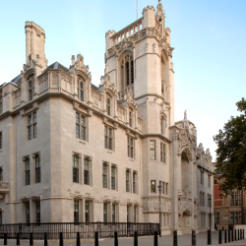The Citizens Advice Bureau volunteer who tried to take her legal claim for the same employment rights as an employee all the way to Europe, has been stopped by the Supreme Court.
The Supreme Court judgment handed down today effectively confirms that volunteers are not entitled to the same protections under the law as employees.
It is the court’s first-ever decision on the legal status of volunteers, and will be welcomed by charities that have volunteers. Mid-Sussex CAB was supported in its defence of the case by a number of charities and umbrella bodies, including Acevo and Volunteering England.
The volunteer, known as Mrs X, had volunteered for Mid-Sussex CAB but had to stop because of health problems after she contracted HIV. She claimed she had been forced out of the role by the charity because of her disability, and attempted to challenge the charity in an employment tribunal.
But the charity argued that she was not entitled to bring an employment tribunal claim because she was not an employee. The Employment Appeal Tribunal agreed, and the Court of Appeal later upheld that decision, so Mrs X took the case to the Supreme Court.
Because the relevant UK law, the Equality Act 2010, does not cover volunteers, Mrs X had relied upon European anti-discrimination legislation which covers people in an “occupation” as well as in employment. She argued that a volunteer position comprised an “occupation” and so her case should be heard by the European Court of Justice.
But the Supreme Court, which heard the case on 31 October and 1 November, ruled that European law clearly states that protection from discrimination in the workplace does not extend to volunteers. It turned down her application to take the case to Europe.
CAB's lawyer:'current system self-regulates pretty well'
Lucy McLynn, a partner at Bates Wells and Braithwaite who represented the CAB in the case, said the judgment “reflects the reality of how volunteering works”.
“Volunteers do not need legal protection. Employees and workers need to be protected because they are reliant on earning a wage. But if a volunteer is discriminated against, they can leave and volunteer for another charity.
“The situation does self-regulate pretty effectively because a charity that is known to discriminate soon won’t have any more volunteers.”
The charities that supported the CAB in the case had voiced concerns that a change to the legal status of volunteers would undermine the ethos of volunteering, pile costs upon charities and formalise the relationship in a way that most volunteers would not want.









